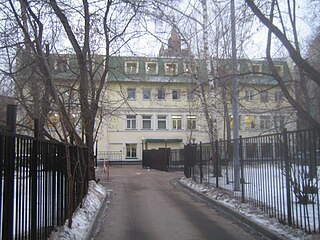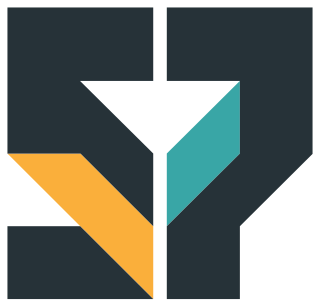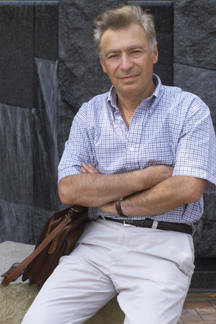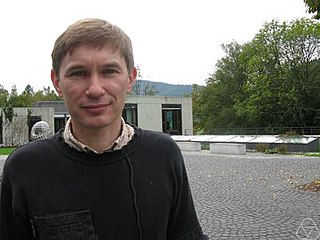Related Research Articles

The Texas Academy of Mathematics and Science (TAMS) is a two-year residential early entrance college program serving approximately 375 high school juniors and seniors at the University of North Texas. Students are admitted from every region of the state through a selective admissions process. TAMS is a member of the National Consortium for Specialized Secondary Schools of Mathematics, Science and Technology.

The Independent University of Moscow (IUM) is an educational organisation with rather informal status located in Moscow, Russia. It was founded in 1991 by a group of prominent Russian mathematicians that included Vladimir Arnold (chairman) and Sergei Novikov. The IUM consists of the departments of mathematics and theoretical physics and the post-graduate school. Anyone can attend lectures and seminars and become a student after passing three exams. The IUM is the only non-state college for the preparation of professional mathematicians in Russia.

The Oklahoma School of Science and Mathematics (OSSM) is a two-year, public residential high school located in Oklahoma City, Oklahoma. Established by the Oklahoma state legislature in 1983, the school was designed to educate academically gifted high school juniors and seniors in advanced mathematics and science. OSSM opened doors to its inaugural class in 1990. It is a member of the National Consortium of Secondary STEM Schools (NCSSS).

Yuri Ivanovich Manin is a Russian mathematician, known for work in algebraic geometry and diophantine geometry, and many expository works ranging from mathematical logic to theoretical physics. Moreover, Manin was one of the first to propose the idea of a quantum computer in 1980 with his book Computable and Uncomputable.

Irving Kaplansky was a mathematician, college professor, author, and amateur musician.
Business mathematics are mathematics used by commercial enterprises to record and manage business operations. Commercial organizations use mathematics in accounting, inventory management, marketing, sales forecasting, and financial analysis.
Victor Gershevich (Grigorievich) Kac is a Soviet and American mathematician at MIT, known for his work in representation theory. He co-discovered Kac–Moody algebras, and used the Weyl–Kac character formula for them to reprove the Macdonald identities. He classified the finite-dimensional simple Lie superalgebras, and found the Kac determinant formula for the Virasoro algebra. He is also known for the Kac–Weisfeiler conjectures with Boris Weisfeiler.
Mathematics education in Australia varies significantly between states, especially at the upper secondary level.

The Budapest Semesters in Mathematics program is a study abroad opportunity for North American undergraduate students in Budapest, Hungary. The coursework is primarily mathematical and conducted in English by Hungarian professors whose primary positions are at Eötvös Loránd University or the Alfréd Rényi Institute of Mathematics of the Hungarian Academy of Sciences. Originally started by László Lovász, László Babai, Vera Sós, and Pál Erdős, the first semester was conducted in Spring 1985. The North- American part of the program is currently run by Tina Garrett out of St. Olaf College in Northfield, MN. She is supported by Kendra Killpatrick and Eileen Shimota. The former North American Directors were Paul D. Humke (1988–2011) and Tom Trotter. The Hungarian director is Dezső Miklós. The first Hungarian director was Gábor J. Székely (1985–1995).
Math 55 is a two-semester long freshman undergraduate mathematics course at Harvard University founded by Lynn Loomis and Shlomo Sternberg. The official titles of the course are Honors Abstract Algebra and Honors Real and Complex Analysis. Previously, the official title was Honors Advanced Calculus and Linear Algebra.

The Ural Federal University named after the first President of Russia B. N. Yeltsin is an educational institution in the Ural region of Russia and one of 10 Russian Federal Universities. It acts as a research and innovation center of the Ural region and cooperates with the Russian Academy of Sciences. UrFU offers educational programs in four areas of knowledge and 108 academic majors.
The Faculty of Mathematics (FM) at the National Research University Higher School of Economics was founded in 2008 jointly by the Higher School of Economics (HSE) and the Independent University of Moscow (IUM). It offers Bachelor of Science program “Mathematics”, Master of Science program “Mathematics”, Master of Science program “Mathematics and Mathematical Physics”. The faculty also plays a key role in the HSE Graduate School of Mathematics. Since the creation of the FM, new faculty members were hired at the international market, and researchers from the USA, Japan, Canada, France, the UK, etc., joined the team. The Faculty of Mathematics has joint departments with distinguished research institutes of the Russian Academy of Science: Steklov Institute of Mathematics, Kharkevich Institute for Information Transmission Problems, Lebedev Physical Institute. Associated with the FM are three international research groups, the so-called laboratories: the Laboratory of Algebraic Geometry and its Applications, the Laboratory of Representation Theory and Mathematical Physics, and the Laboratory of Mirror Symmetry and Automorphic Forms.

Alan Stuart Edelman is an American mathematician and computer scientist. He is a professor of applied mathematics at the Massachusetts Institute of Technology (MIT) and a Principal Investigator at the MIT Computer Science and Artificial Intelligence Laboratory (CSAIL) where he leads a group in applied computing. In 2004 he founded a business, Interactive Supercomputing, which was later acquired by Microsoft. Edelman is a fellow of American Mathematical Society (AMS), Society for Industrial and Applied Mathematics (SIAM), Institute of Electrical and Electronics Engineers (IEEE), and Association for Computing Machinery (ACM), for his contributions in numerical linear algebra, computational science, parallel computing, and random matrix theory, and he is one of the cocreators of the technical programming language Julia.

Vladimir Leonidovich Popov is a Russian mathematician working in the invariant theory and the theory of transformation groups.

Moscow State School 57 is a public school located in the Khamovniki District of Moscow, Russia. The school was founded in 1877 and is best known for its specialized secondary program in mathematics and its alumni.
Boris Lvovich Feigin is a Russian mathematician. His research has spanned representation theory, mathematical physics, algebraic geometry, Lie groups and Lie algebras, conformal field theory, homological and homotopical algebra.

Yakov Borisovich Pesin was born in Moscow, Russia on December 12, 1946. Pesin is currently a Distinguished Professor in the Department of Mathematics and the Director of the Anatole Katok Center for Dynamical Systems and Geometry at the Pennsylvania State University (PSU). His primary areas of research are the theory of dynamical systems with an emphasis on smooth ergodic theory, dimension theory in dynamical systems, and Riemannian geometry, as well as mathematical and statistical physics.

Yulij Sergeevich Ilyashenko is a Russian mathematician, specializing in dynamical systems, differential equations, and complex foliations.
John Edward McCarthy is a mathematician. He is currently the Spencer T. Olin Professor of Arts and Sciences, and chair of the Department of Mathematics and Statistics at Washington University in St. Louis. He works in operator theory and several complex variables.

Alexander A. Voronov is a Russian-American mathematician specializing in mathematical physics, algebraic topology, and algebraic geometry. He is currently a Professor of Mathematics at the University of Minnesota and a Visiting Senior Scientist at the Kavli Institute for the Physics and Mathematics of the Universe.
References
- ↑ Yu. S. Ilyashenko and A. B. Sossinsky: The Independent University of Moscow, EMS Newsletter, March 2010, p.42 http://www.ems-ph.org/journals/newsletter/pdf/2010-03-75.pdf
- ↑ The list of the MiM alumni http://www.mccme.ru/mathinmoscow/index.php?page=22
- ↑ The list of home universities http://www.mccme.ru/mathinmoscow/index.php?page=24
- ↑ MiM schedule http://www.mccme.ru/mathinmoscow/index.php?page=9
- ↑ MiM picasa photoalbums https://plus.google.com/photos/101813577580794585847/albums
- ↑ The AMS scholarships page http://www.ams.org/programs/travel-grants/mimoscow
- ↑ Notices of the AMS, January 2012 http://www.ams.org/notices/201202/rtx120200328p.pdf
- ↑ The CMS page about Math in Moscow scholarships http://cms.math.ca/Scholarships/Moscow/Moscow_appl.pdf
- ↑ A note about an UNC student http://www.unco.edu/news/releases.aspx?id=1229
- ↑ FIU news http://news.fiu.edu/2009/10/life-in-moscow-for-fiu-math-students/6818
- ↑ The report of an MIT student "Archived copy" (PDF). Archived from the original (PDF) on 2011-06-10. Retrieved 2012-03-10.
{{cite web}}: CS1 maint: archived copy as title (link) - ↑ List and contents of MiM courses http://www.mccme.ru/mathinmoscow/index.php?page=10
- ↑ Paul D. Humke, Yulij Ilyashenko, and Serge Tabachnikov, "Bringing Eastern European Mathematical Traditions to North American Students," p. 3 http://www.ams.org/notices/200310/comm-humke.pdf
- ↑ IUM contacts http://ium.mccme.ru/english/contact.html